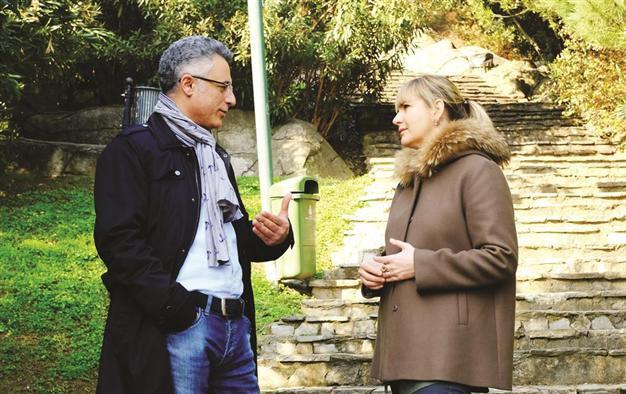Trust in judiciary at nadir but increasing, says AKP jurist official
Cansu Çamlıbel ISTANBUL

‘The suspension of such judges from the HSYK was a belated move. Today, there are Kemalist and Alevi judges in HSYK. This is an advantage for Turkey,’ says Osman Can, former Constitutional Court rapporteur. HÜRRİYET photo, Emre YUNUSOĞLU
Trust in the judiciary is at its lowest level in Turkey today, but the country’s judicial body will be better in future after recent elections also resulted in leftist and Kemalist judges joining the body, according to a high-ranking ruling party member.
“The trust in the judiciary is at its lowest levels today. But, it is increasing. I trust it more than before with the recent elections in the HSYK [Supreme Council of Judges and Prosecutors] because at least there is a more open structure in which it is clear who is who. But the general structure is problematic,” Professor Osman Can told daily Hürriyet in an interview.
Can was appointed to the Constitutional Court as rapporteur in July 2002. In 2003, he founded the Turkish-German Forum for Public Law and became the coordinator of Turkey. In 2007, he was the rapporteur for the case of constitutional amendments, which ultimately resulted in the president being elected directly by the people. In 2008, he recommended the denial of the request in a case which demanded the closure of the ruling Justice and Development Party (AKP). Since September 2012, he has been serving as a member of the AKP’s Central Decision and Executive Board (MKYK).
Can defended the government’s much-debated decision to change the structure of the HSYK, saying some judges who were working according to instructions from a structure – a government euphemism for the Fethullah Gülen movement – should be removed from the HSYK and that this should be done within the framework of the rule of law
“The suspension of such judges from the HSYK was a belated move. Today, there are Kemalist [a term used for those who follow the ideas of the Mustafa Kemal Atatürk, the founder of the Turkish Republic] and Alevi [a person who follows what many describe as a liberal sect of Islam] judges in HSYK. This is an advantage for Turkey,” said Can.
Can said the increase of the number of the judges at the Supreme Court of Appeals and the Council of State were not because of the workload.
“Let’s be honest. The truth is that we had to remove the illegally gathered structure which was holding the will of the Supreme Court of Appeals in a secretive way. This is not a dictatorship, so we had to do it on constitutional grounds. You cannot say that ‘I am firing these judges.’ It is also impossible [to remove them] via the discipline process or by sending them to the Supreme Court, because all these ways are closed by the parallel structure,” said Can, referring to the Gülen movement. The government repeatedly has claimed that Gülenists have penetrated into critical posts within the state, judiciary and police force. Many people within these ranks were reshuffled last year due to their alleged ties with the Gülen movement.
“The only thing you could do is to increase the number of judges. You are in a battleground; different steps are taken. But, under normal circumstances, this is not normal. This should be taken as a transitional phenomenon,” said Can.
